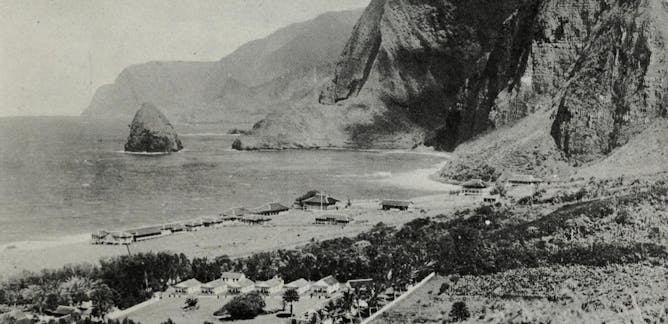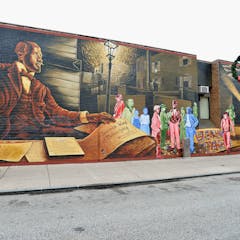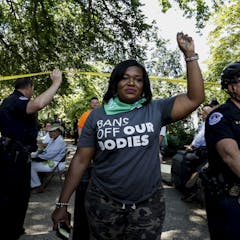
Artículos sobre Black history
Mostrando 1 - 20 de 86 artículos

Historians are working to shine a light on Alice Ball’s legacy and contributions to an early treatment of a dangerous and stigmatizing disease.

Angelou’s 1960s political journalism in Africa demonstrates her desire to link the struggle for civil rights in the US to global campaigns against racism.

To truly appreciate the track, it’s important to go beyond the long shadow of the Beatles’ version.

Fannie Lou Hamer became one of the most respected civil rights leaders during the 1960s in part because of her resistance to racist voting laws in Mississippi.

Unlike some GOP politicians, a college professor who teaches Black history to mostly white students was excited that the Black national anthem was being played at the Super Bowl.

Over a century ago, white Philadelphia elites believed the city was going to the dogs – and they blamed poor Black inner-city residents instead of the racism that kept this group disenfranchised.

The Black Londoners Project approaches Black history geographically by supplementing narratives of 16 Black individuals with archival evidence about their lives.

The unpleasant wartime reality for the Tuskegee Airmen was that, in addition to a determined enemy, they had to fight their own side for the right to serve.

With control over the Virginia Legislature at stake in the Nov. 7 election, the historic battle over what is taught in public schools remains a priority for both Democrats and Republicans.

The portraits hold up a mirror to a society that has underappreciated the Windrush generation for far too long.

While it’s widely believed that Howard University came to be known as “The Mecca” in the 1960s, new evidence shows the nickname is more than half a century older than that.

In the US, white men have long had the power to make decisions about women’s reproductive health care. Those decisions have often been especially harmful to Black women.

As the “Queen” of gospel music, Mahalia Jackson sang two songs during the historic March on Washington. But her most famous line may have been a suggestion to Rev. Martin Luther King Jr.

Florida’s new standards for teaching social studies include throwbacks to an interpretation of slavery as benign or inconsequential.

While a Florida curriculum implies that enslaved Africans ‘benefited’ from skills acquired through slavery, history shows they brought knowledge and skills to the US that predate their captivity.

Tactics used to censor the teaching of American history in Florida schools bear much in common with those seen in the illiberal democracies of Israel, Turkey, Russia and Poland.

Many students say they aren’t learning much about slavery beyond its harsh conditions. A historian explores how Juneteenth offers opportunities to change that reality.

Tombstones that used the honorifics ‘Mr.’ and ‘Mrs.’ restored a sense of dignity to people who had been denied it in life.

Juneteenth is part of a rich heritage of African American emancipation and freedom celebrations.

The lack of visibility by Black researchers and physicians in scientific literature perpetuates systemic racism in medicine.
